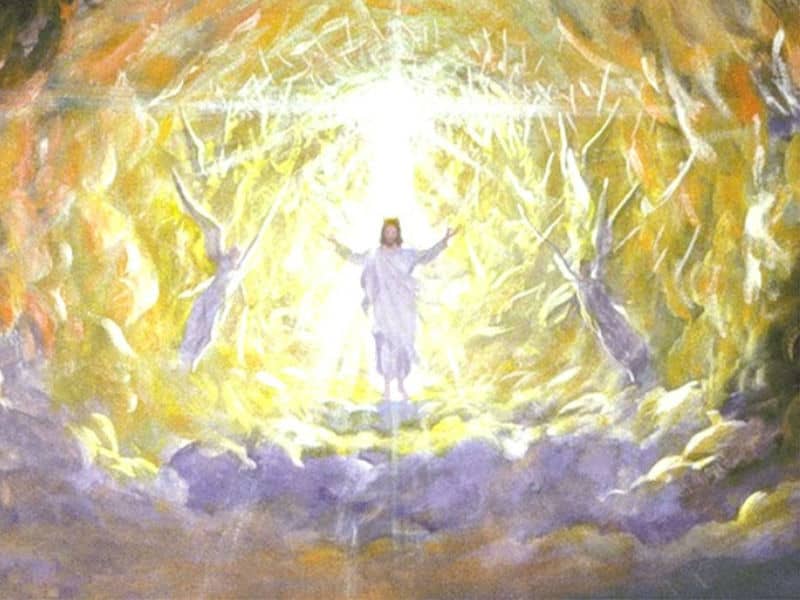Given these accusations in his latest book, "Papal Sin: Structures of Deceit" (Doubleday), has Pulitzer Prize-winning author Garry Wills ever thought of simply quitting Catholicism and joining another church?
"No. Never. I would consider that deserting Christianity. There's so much I love about the church,'' Wills said in a telephone interview. "Disagreeing with the pope doesn't disqualify you as a Catholic.''
Good thing.
Wills' jeremiad judges the church to be wrongheaded in its insistence on clerical celibacy and its opposition to birth control, abortion, homosexuality, artificial insemination, divorce and remarriage, and women in the priesthood.
As for theology, "the arguments for much of what passes as current church doctrine are so intellectually contemptible that mere self-respect forbids a man to voice them as his own,'' Wills writes. No wonder Catholics won't obey Pope John Paul II and don't want to become priests any longer, he says.
Wills, 66, a Northwestern University history professor, long-ago Jesuit seminarian, and author of a slew of books, including "Confessions of a Conservative'' and "A Necessary Evil," strongly identifies with his church and attends Mass each week. And he says the inspiration for the book was wholly traditional: two treatises against deceit written by St. Augustine, the subject of a brief 1999 biography by Wills.
Even those who agree may be taken aback by Wills' unremittingly bleak tone. The Vatican correspondent for the liberal National Catholic Reporter, John L. Allen, Jr., found "sweeping conclusions and finger-pointing that seem excessive.'' Still, he concluded: "This is not Wills' best book, but it may prove to be among his most important.''
As for conservatives, the onetime spokesman for the U.S. hierarchy, Russell Shaw, writes in Crisis magazine that Wills decries deceit while committing "a multitude of dishonesties.'' Shaw accuses Wills of ``false reasoning, shoddy scholarship, and overuse of polemical rhetoric intended to slant the argument his way in the absence of compelling evidence.''
Wills has expressed many of these opinions in previous writings. So have other Catholics, though rarely with Wills-level panache. What's new is Wills' sweeping claim that all the church's problems emanate from deceit, including inability to honestly admit that the popes and the church have made big mistakes.
He is particularly scathing on the lax way officialdom has treated priestly child molesters. Wills says many priests also have relationships with women that are "known and kept quiet.''
So, too, with priests' homosexual relationships, which Wills contends result in part from the current pope's insistence on the celibacy rule. "Many observers suspect that John Paul's real legacy to his church is a gay priesthood.''
On celibacy, Wills argues, Pope Paul VI offered a "ludicrous and compromising argument,'' which John Paul II has endorsed. Paul VI presented shaky arguments, too, against artificial birth control in his 1968 encyclical, "the most disastrous papal document of this century,'' in Wills' view.
Reason? Paul VI, and John Paul after him, felt bound by prior papal teaching, he writes.
On women priests, Wills thinks the ban originated in Old Testament ritual purity and subordination of females. But Rome doesn't admit the outmoded basis for its policy, he says, and devises "weak'' and "tortuous'' reasoning to justify it.
Similarly, he says, the church practices "lying fiction'' by opposing divorce while granting American Catholics 60,000 annulments a year.
One of Wills' most important modern-day examples is the undying church debate over the Nazi Holocaust. British author John Cornwell, a Catholic layman, harshly attacked Pope Pius XII for not denouncing Hitler in his book "Hitler's Pope," while in two other recent books the Rev. Pierre Blet ("Pius XII and the Second World War") and Margherita Marchione ("Pope Pius XII: Architect for Peace") stoutly defended Pius.
Wills acknowledges that Pius feared provoking the Nazis to worse repression and hoped he could play the peacekeeper if he remained neutral. Even if the pope was wrong, this "could have been an honest mistake.''
But inexcusable, says Wills, are Catholics' "false readings of history'' since the war. He says Pius himself lied when he claimed in 1946 to have condemned the "fanatical anti-Semitism inflicted on the Hebrew people.'' Pius presumably referred to his 1942 address which spoke of "hundreds of thousands who, without any fault of their own, sometimes only by reason of their nationality or race, are marked down for death or gradual extinction.'' The pro-Pius camp says that obviously referred to Nazism, but Wills protests that Pius "refused to name Jews or Nazis or Germans specifically.''
Wills thinks the same moral evasiveness tarnished "We Remember,'' the 1998 Vatican statement on the Holocaust orchestrated by Pope John Paul II. Rome confessed that individual Christians had not resisted Nazi evil strenuously enough, says Wills, but did not acknowledge that Christians helped inflict the Holocaust and that some bishops and priests supported the Nazis.
Thus the project was historically dishonest, he concludes, and "useful only to the fictions that the Vatican wants to maintain about itself.''
A more benign reading of John Paul II's Jewish policy appears in the recent papal biography by George Weigel, "Witness to Hope," which makes the case that the pope has consistently shown sensitivity toward Jewish concerns.

